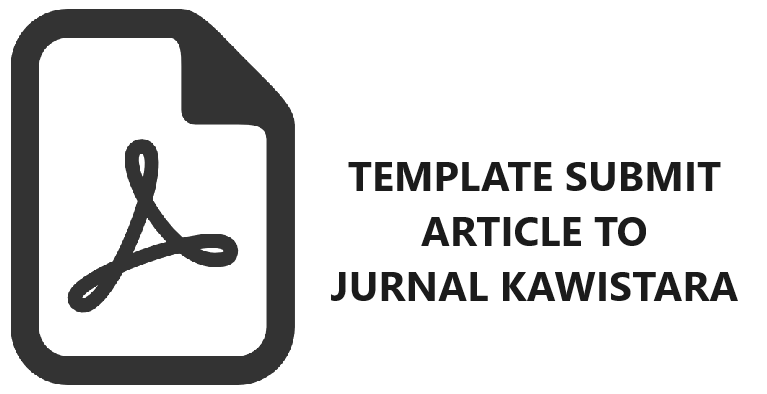Analysis of Settlement Availability at Manyar Economic District Strategic Area of Gresik Regency
Anak Agung Sagung Alit Widyastuty(1*), Annisa Budhiyani Tribhuwaneswari(2), Lutfi Zulkarnain(3)
(1) Universitas PGRI Adi Buana Surabaya
(2) Universitas PGRI Adi Buana Surabaya
(3) Universitas PGRI Adi Buana Surabaya
(*) Corresponding Author
Abstract
Rapid development and increasing population density have created challenge for many regions to provide settlement spaces. The demand for settlement requires analysis that can forecast on the availability of space and the growth of settlement. Such a challenge is faced by Manyar sub-district of Gresik regency. Since it became an Economic Strategic District Area in the agroindustry area in Gresik Regency, the demand for settlement at Manyar increased following the 2017 population boom. Manyar is recorded as the third maximum growth in Gresik regency with numbers of 114.056 inhabitant living in 9.542 acre. This study aims to examine the facilities and infrastructure, as well as the availability of residential land in the next 20 years. This study uses quantitative technique that includes projections of settlement demand. Data collection methods takes the form of field observations and surveys of related agencies. The analytical technique utilized was backlog and scalogram study regarding the availability of settlement, facilities and infrastructure support. As the result, this paper found that the population growth rate of Manyar sub-district reaches 0.1% every year. Consequently, the settlement and supporting infrastructures required at the year 2039 increase massively since 2019 consists of housing facilities, education, health facilities, worship facilities, commerce and services facilities, and green open spaces. The land required for the development of the facility is 269.1 acre. Based on the level of need for residential facilities and infrastructure in the next 20 years in Manyar sub-district, further research is needed to anticipate the phenomenon of pond land conversion by maintaining land functions.
Keywords
Full Text:
PDFReferences
Afriansyah, R., Wicaksono, A., & Djakfar, L. (2012). Penentuan prioritas pengembangan jaringan jalan pendukung kawasan strategis di pulau sumbawa. Jurnal Rekayasa Sipil, 6(3), 214–225.
Anggreini, A., Wulandari, L. D., & Ramdlani, S. (2018). Pola Ruang Permukiman Industri Mebel berdasarkan Aktivitas Industri (Studi Kasus : Industri Mebel Bukir Pasuruan). Repository Universitas Brawijaya, 1–8.
As’ari, Ruli, & Fadjarani, S. (2018). Penataan Permukiman Kumuh Berbasis Lingkungan. Geografi, 15(1).
Badan Pusat Statistik. (2018). Kabupaten Gresik Dalam Angka Tahun 2018. Gresik.
Badan Standarisasi Nasional. (2004). Tata cara perencanaan lingkungan perumahan SNI 03 - 1733 - 2004 (2004). Jakarta.
BAPPEDA. (2011). Rencana Tata Ruang Dan Wilayah Kabupaten Gresik Tahun 2011 - 2031. Kabupaten Gresik.
Boeree, C. G. (2006). Personality Theories of Abraham Maslow (1908 - 1970). (C. G. Boeree, Ed.). Pennsylvania, Amerika Serikat: Shippensburg University. Retrieved from http://www.ship.edu/~cgboeree/perscontents.html
BPS. (2018). Kabupaten Gresik Dalam Angka 2018. Gresik.
Darmawan, S., & Utami, T. B. (2018). Pola pemanfaatan ruang terbuka pada pemukiman kampung kota. Arsitektur, Bangunan Dan Lingkungan, 7(3), 127–136. Retrieved from https://media.neliti.com/media/publications/265313-pola-pemanfaatan-ruang-terbuka-pada-pemu-21452603.pdf
Lestari, S. (2018). Dampak industri mie instan terhadap kondisi sosial dan ekonomi masyarakat desa sukomulyo kecamatan manyar kabupaten gresik (. Swara Bhumi, 1–7.
Mirah, E. M., Mononimbar, & Tilaar, S. (2017). Perubahan Pemanfaatan Lahan di Kawasan Strategis Tumbuh Cepat Kapitu - Teep Kabupaten Minahasa Selatan. Spasial : Perencanaan Wilayah Dan Kota, 4(1), 147–173.
Muta’ali, L. (2015). Teknik Analisis Regional Untuk Perencanaan Wilayah, Tata Ruang dan Lingkungan. (I. A. Fadhil, Ed.) (Pertama). Yogyakarta: Badan Penerbit Fakultas Geografi Universitas Gadjah Mada.
Peraturan Kepala Badan Pusat Statistik Nomor 37 Tahun 2010. (2010). Tentang Klasifikasi Perkotaan dan Perdesaan di Indonesia.
Peraturan Pemerintah Republik Indonesia No. 26 Tahun 2008. (2008). Tentang Rencana Tata Ruang Wilayah Nasional. Jakarta.
Prihatin, R. B. (2015). Alih Fungsi Lahan di Perkotaan (Studi Kasus di Kota Bandung dan Yogyakarta). Jurnal Aspirasi, Vol. 6(No. 2), 105–118.
Putra, M., Giyarsih, S. R., & Kurniawan, A. (2017). Sektor Unggulan dan Interaksi Antarwilayah pada Kawasan Strategis Nasional Perkotaan MEBIDANGRO. Jurnal Wilayah Dan Lingkungan, 5(3), 181. https://doi.org/10.14710/jwl.5.3.181-187
Rachmawati, S. D., & Widyastuty, A. A. S. A. (2015). Status Kepemilikan Lahan Pendukung Pertumbuhan Permukiman Kumuh di Kawasan Rel. Waktu, 13(02), 54–62.
Rosa, Y. (2013). Rumusan Metode Backlog Rumah. Permukiman, 4(2), 58–68.
Rotinsulu, F. A., Franklin, P. J. ., & Sembel, A. S. (2017). Analisis Ketersediaan Dan Kebutuhan Sarana Permukiman Di Kecamatan Kalawat. Spasial, 4(3), 42–51. Retrieved from https://ejournal.unsrat.ac.id/index.php/spasial/article/view/17299
Rumengan, M. R. C., Kindangen, J. I., & Takumansang, E. D. (2019). Analisis Ketersediaan dan Kebutuhan Fasilitas Sosial di Kota Kotamobagu. SPasial, 6(2), 375–387.
Undang-undang Republik Indonesia Nomor 1 Tahun 2011. (2011). Tentang Perumahan dan Kawasan Permukiman. Jakarta.
Undang-undang Republik Indonesia Nomor 26 tahun 2007. (2007). Tentang Penataan Ruang. Jakarta.
Undang - undang Republik Indonesia Nomor 1 Tahun 2011. (2011). Tentang Perumahan dan Kawasan Permukiman. Indonesia.
Article Metrics
Refbacks
- There are currently no refbacks.
Copyright (c) 2021 Anak Agung Sagung Alit Widyastuty

This work is licensed under a Creative Commons Attribution-ShareAlike 4.0 International License.
Jurnal Kawistara is published by the Graduate School, Universitas Gadjah Mada.











